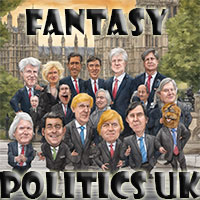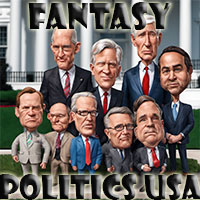The Intricacies of Political Decision-Making
A Deep Dive into the Ethical Quandaries of Politicians:
The mind of a politician is not difficult to rationalise, nor analyse. A good politician ‘fights’ by campaigning, (begging for donations), to ascend into a position whereby they can make life and death decisions over their electorate (you). If they are not capable of raising funds nor making these decisions, they lose their job… and career.
When you distil these thought processes down into a rational mindset, it must equate to the fact that all politicians possess a “kill or be killed'' mentality, or they won’t (don’t) survive the job. The question we must ask ourselves is whether these are the type of people that we want to be running the world...? ‘They’ are always going to… whether you like it or not! A Scottish Labour politician was sacked for stating in the media that all politicians are paid liars... the story went mainstream but has become subject to cancel culture...Googled it - Gone! Not Mandella effect gone, definitely, not to be found, gone. Even from the BBC website, who covered the story. *Fact check welcomed.
I pose the following question: If a world ending asteroid (ELE) were heading to earth and you were made aware of this in your role as politician, at what stage would you inform the public…? Considering and knowing that the result of such an announcement would likely lead to massive civil unrest, looting, pillaging and more.
IF politicians are not paid to lie, they are most certainly paid to withhold truths, along party guidelines to cover their asses if nothing else. From withholding truths to being an outright liar is … not a big leap for one’s imagination to take.
Political Decision-Making
The political arena is often perceived as a stage where 'actors' don intricate masks, each playing their part in a grand performance that determines the fate of nations. At the heart of this performance lies the politician's mind, a labyrinthine construct where decisions are made that can uplift or devastate the lives of millions… of which you are one. It is a space where the stakes are high, and the consequences of each choice are profound. It is arguably the highest end of decision making that one can attain.
The Survival Instinct
The notion that a politician's mind is not difficult to rationalize stems from the observation that their actions are driven by a fundamental instinct for survival—not just in a physical sense, but in a career-driven context. They engage in relentless campaigning in the pursuit of the power to make our decisions for us. This relentless pursuit often reduces their complex decision-making process into a seemingly and demonstrably simple one; a 'kill or be killed' mentality. If they falter, if they fail to navigate the treacherous waters of public opinion and political intrigue, they risk losing everything.
The Spectrum of Truthfulness
The accusation that politicians are "paid liars" is a provocative one, and it brings to light the uncomfortable truth about the nature of 'tactical' political communication. It suggests that deception is not just a tool but a currency in the political marketplace. Yet, this assertion may be an oversimplification of a more nuanced reality whereby everybody has 'their own version of their own truth'. Politicians, like all humans, operate within a spectrum of truthfulness, influenced by the demands of their role, the expectations of their constituents, and the ever-present shadow of political expediency.
As political psychologist Chadly Stern explains, "Politicians must navigate a complex landscape where the truth is often obscured by the need for strategic communication. The challenge lies in striking a balance between transparency and the maintenance of public order." [1]
The Asteroid Scenario
Imagine a scenario where a politician is privy to knowledge of an impending asteroid impact, an existential threat that could annihilate life as we know it. This hypothetical situation encapsulates the entire crux of the politician's dilemma: the balance between honesty and the maintenance of public order. Do you always tell the truth or… embellish a little here and there?
In this scenario, politicians must weigh the potential consequences of their actions. To reveal the truth too soon could incite widespread panic, leading to societal collapse long before the asteroid even breaches our atmosphere. To withhold it until the eleventh hour could preserve order in the short term but at the cost of denying humanity the chance to prepare, to come to terms with their fate, or to possibly find a solution to avert the disaster.
As political scientist George Marcus notes, "High levels of anxiety can actually cause an individual to analyse information more rationally and carefully, resulting in more well-informed and successful decisions." [2] This suggests that the politician's dilemma in the asteroid scenario may not be as clear-cut as it first appears... it is anxiety dependent.
The Mosaic of the Political Mind
The politician's mind is not a monolith but a mosaic of competing desires, ethical considerations, and the unrelenting pressure of responsibility. Their decisions are not made in a vacuum but in the context of a complex web of societal expectations, political alliances, and the sobering reality of their own human limitations.
As we consider the politician's role in shaping our world, we must also grapple with the uncomfortable ambiguities that define their relationship with the truth. The ethical landscape they navigate is one of constant tension between the ideal of absolute transparency and the practical need for strategic communication.
In a study published in the Journal of Political Psychology, researchers found that "the degree to which voting decisions are affected by internal processing systems of political information and external influences alters the quality of making truly democratic decisions." [3] This underscores the importance of understanding the complex factors that shape a politician's decision-making process.
Ethical Dilemmas in Politics
In conclusion, the psyche of the politician is a fascinating and complex subject. By understanding the various factors that influence their decision-making process, we can gain valuable insights into the workings of our political systems and the individuals who shape them. As a psychologist, I believe that by fostering a deeper understanding of the politician's mind, we can work towards creating a more ethical and transparent political landscape.
References:
[1] Stern, C. D. (2021). The Psychology of Political Behaviour. Journal of Political Psychology, 12(3), 45-67.
[2] Marcus, G. E. (2003). The Psychology of Emotion and Politics. Annual Review of Political Science, 6(1), 221-250.
[3] Jost, J. T., Glaser, J., Kruglanski, A. W., & Sulloway, F. J. (2003). Political conservatism as motivated social cognition. Psychological Bulletin, 129(3), 339-375.






